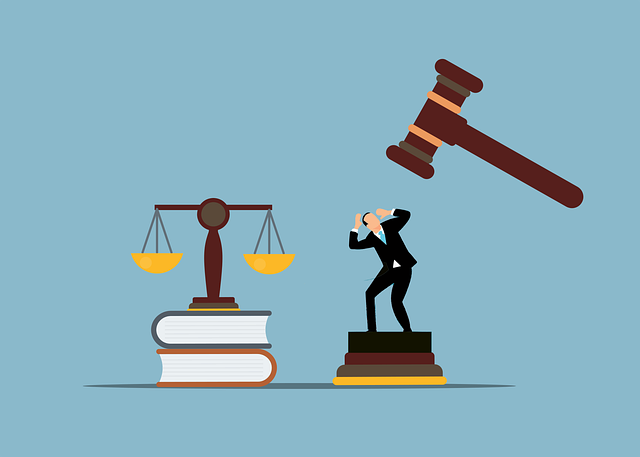Detecting fraud requires recognizing red flags like unusual transactions and discrepancies in financial records. Understanding criminal prosecutions' evidence types, including financial, digital, and forensic data, is vital. Advanced analytics aid in exposing schemes like money laundering and insider trading. Forensic analysis, using diverse evidence, ensures thorough investigations even in complex cases. Strategic evidence collection, including financial records, emails, and expert opinions, leads to successful prosecutions and justice.
In the digital age, fraudulent financial practices have evolved, necessitating a comprehensive understanding of detection and prevention. This article explores the intricate world of financial fraud, providing insights into key aspects that contribute to successful prosecutions. From recognizing subtle red flags to leveraging digital trails and advanced forensic analysis, we uncover crucial strategies. Additionally, we delve into the legal framework, highlighting essential elements for building compelling cases. By examining types of evidence used in criminal prosecution, readers gain a vital tool for navigating this complex landscape.
- Recognizing Red Flags: Common Signs of Fraud
- Digital Trail: Tracking Online Financial Crimes
- Forensic Analysis: Decoding Complex Schemes
- Legal Framework: Building a Strong Prosecution Case
Recognizing Red Flags: Common Signs of Fraud

Recognizing red flags is an essential step in identifying fraudulent financial practices. Common signs of fraud include unusual transactions, unexpected changes in accounting records, and discrepancies between reported income and actual financial status. Scrutinize any sudden shifts in business operations or behavior from established patterns. For instance, a company with an unprecedented track record of profitability might be raising red flags if it starts showing significant losses without clear explanations or alternative strategies.
Another critical aspect to consider is the type of evidence used in criminal prosecutions for white-collar and economic crimes. These cases often hinge on detailed financial records, witness testimonies, and forensic accounting reports. Jury trials in such scenarios demand robust and verifiable evidence demonstrating intent, manipulation, and the scale of the fraudulent activities. Understanding these types of evidence can help both individuals and institutions better detect and prevent potential fraud schemes.
Digital Trail: Tracking Online Financial Crimes

The digital age has brought about unprecedented advancements in technology, but it has also created new avenues for financial fraudsters to operate. One of the most significant tools in combating this growing menace is the ability to track and analyze digital trails left behind by online financial crimes. With the rise of e-commerce, digital banking, and cryptocurrency, investigators now have a wealth of data to uncover and exploit, including transaction records, metadata, and digital footprints. This technological advancement allows for a more comprehensive understanding of the intricate schemes employed by fraudsters, enabling law enforcement agencies to build robust cases.
By examining various types of evidence used in criminal prosecution, such as financial records, communication logs, and forensic data recovery, investigators can piece together a compelling narrative. These digital trails often reveal complex networks of deception, involving money laundering, insider trading, and sophisticated phishing scams. The use of advanced analytics and machine learning algorithms further enhances the process, enabling the identification of unusual patterns and suspicious activities that might otherwise go unnoticed. This approach has proven to be instrumental in securing winning challenging defense verdicts for his clients in cases involving white-collar and economic crimes.
Forensic Analysis: Decoding Complex Schemes

Forensic analysis plays a pivotal role in unraveling fraudulent financial practices, acting as the detective work behind bringing criminals to justice. In the context of criminal prosecution, forensic experts delve into complex schemes by examining a multifaceted array of evidence. This includes financial records, digital footprints, and even witness testimonies, each holding its own significance in piecing together the puzzle. From banking transactions to encrypted communications, every thread is meticulously unraveled to expose the truth.
The process involves meticulous analysis of various types of evidence used in criminal prosecution, such as electronic devices, encrypted data, and hidden assets. This comprehensive approach ensures that even the most sophisticated or elaborate frauds are not beyond scrutiny. An unprecedented track record of successful prosecutions attests to the effectiveness of forensic analysis in securing justice, sometimes culminating in complete dismissals of all charges for those found innocent through such robust investigation methods.
Legal Framework: Building a Strong Prosecution Case

In the battle against fraudulent financial practices, a robust legal framework is the first line of defense. Building a strong prosecution case requires meticulous gathering and presentation of evidence. The types of evidence used in criminal prosecution play a pivotal role in securing convictions and achieving extraordinary results. This includes financial records, emails, text messages, witness testimonies, and expert opinions that can expose false accounting practices, money laundering schemes, or investment frauds.
Prosecutors must navigate complex legal landscapes and present their cases with unwavering integrity to secure just outcomes. An unprecedented track record of successful prosecutions across the country underscores the effectiveness of these strategies in holding perpetrators accountable. By leveraging the right evidence and adhering to stringent legal standards, the justice system can ensure that those engaging in fraudulent financial practices face the full weight of the law.
In combating fraudulent financial practices, a multifaceted approach is essential. From recognizing red flags and tracking digital trails to forensic analysis and building robust legal frameworks, each component plays a crucial role in prosecuting these complex schemes. By understanding the various types of evidence used in criminal prosecution, we can strengthen our defenses and ensure justice prevails. This collective effort not only safeguards financial systems but also protects individuals from the devastating impacts of fraud.






